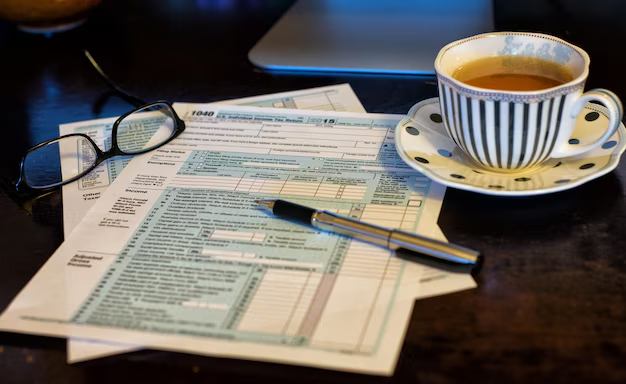Understanding Virginia's State Income Tax: What You Need to Know
Navigating the world of taxes can be daunting, but it’s an essential part of financial planning and civic responsibility. Are you curious about Virginia's stance on state income tax? You’re in the right place. Let’s explore how Virginia handles state income tax and uncover related topics that will help you manage your finances effectively.
Does Virginia Impose a State Income Tax?
Yes, Virginia does impose a state income tax. Understanding the specifics can help you accurately prepare your annual tax returns and plan for any tax liabilities or refunds.
Virginia's Tax Structure
Virginia's income tax is progressive, meaning that the tax rate increases with higher levels of income. This is similar to the federal income tax system.
Tax Rates and Brackets
As of 2023, Virginia has four tax brackets, which apply differently depending on your filing status:
- 2% on the first $3,000 of taxable income.
- 3% on taxable income between $3,001 and $5,000.
- 5% on taxable income between $5,001 and $17,000.
- 5.75% on taxable income over $17,000.
These rates mean that as you earn more within these brackets, your income is subject to higher rates of taxation. Knowing your bracket can aid in financial planning and budgeting.
Filling Your Virginia State Income Tax
Timely and accurate filing is critical. Here’s a breakdown of the process:
- Determine Your Filing Status: Similar to federal taxes, it could be single, married filing jointly, married filing separately, or head of household.
- Collect Necessary Documents: Make sure you have all relevant income documents, such as W-2s and 1099s.
- Calculate Taxable Income: Subtract allowable deductions from your gross income.
Deductions and Credits
Understanding deductions and credits can significantly reduce your tax liability. Here's what you need to know:
Standard and Itemized Deductions
Virginia allows taxpayers to choose between standard and itemized deductions.
- Standard Deduction: For 2023, the standard deduction is $4,500 for single filers and $9,000 for married couples filing jointly.
- Itemized Deductions: If you have deductible expenses that exceed the standard deduction, itemizing might be beneficial.
Popular Tax Credits
Credits can directly decrease your tax liability. Here are some common ones:
- Earned Income Tax Credit (EITC): For lower-income individuals or families.
- Credit for Low Income Individuals: Offers relief to those below specified income levels.
- Land Preservation Tax Credit: Encourages preserving Virginia’s natural landscapes.
The Importance of Withholding
Having the correct amount withheld from your paycheck can prevent surprise tax bills at the end of the year. Virginia requires employers to withhold state income tax from their employees’ wages.
Adjusting Your Withholding
You can adjust your Virginia tax withholding by submitting a completed Virginia Form VA-4 to your employer. This can be adjusted as needed, especially after significant life changes such as marriage or having a child.
Quarterly Payments
If you're self-employed or have other significant income without withholding, consider making quarterly estimated tax payments to avoid penalties.
Preparing for Tax Season
Here are some tips to ensure you're ready when tax season arrives:
- Stay Organized Throughout the Year: Keep all income documents, deductions receipts, and previous tax returns easily accessible.
- Utilize Tax Software: Consider using tax preparation software to help file accurately.
- Consult a Tax Professional: If unsure, seeking advice from a tax professional can provide personalized insights.
Frequently Asked Questions
What if I Work in Another State but Live in Virginia?
Virginia residents must pay state income tax on all income earned, regardless of location. If you've paid taxes in another state, you might be eligible for a tax credit to avoid double taxation.
Are Military Personnel Taxed Differently?
Virginia provides specific rules for military personnel. Active-duty military pay is not taxed if the service member claims Virginia residence but is stationed outside the state.
What Happens if I Don’t File?
Failing to file and pay taxes can lead to penalties. It’s crucial to file on time or request an extension if needed.
Practical Tips for Virginia Taxpayers
Here’s a quick summary of key takeaways and next steps for Virginia taxpayers:
- 🗓️ File Early: Avoid last-minute rushes and receive any refunds sooner.
- 📈 Stay Updated: Tax laws change, so ensure you’re aware of the current rates and deductions.
- 👨👩👧👦 Adjust with Life Changes: Update withholdings after significant life events.
- 💡 Use Credits: Maximize eligible credits to reduce tax burden.
- 🔍 Keep Records: Maintain all tax-related documents for at least three years.
Conclusion
Understanding Virginia's state income tax system may seem complex, but breaking it down into manageable parts makes it accessible. From knowing your tax bracket and making informed decisions on deductions and credits to staying organized throughout the year, each step helps you manage your fiscal responsibilities more effectively. By taking charge of your tax situation, you position yourself for financial confidence and success year-round.

Related Topics
- Am I Tax Exempt
- Are 401k Contributions Tax Deductible
- Are 529 Plan Contributions Tax Deductible
- Are Attorney Fees Tax Deductible
- Are Campaign Contributions Tax Deductible
- Are Charitable Donations Tax Deductible
- Are Church Donations Tax Deductible
- Are Churches Tax Exempt
- Are Closing Costs Tax Deductible
- Are Contributions To 529 Plans Tax Deductible
